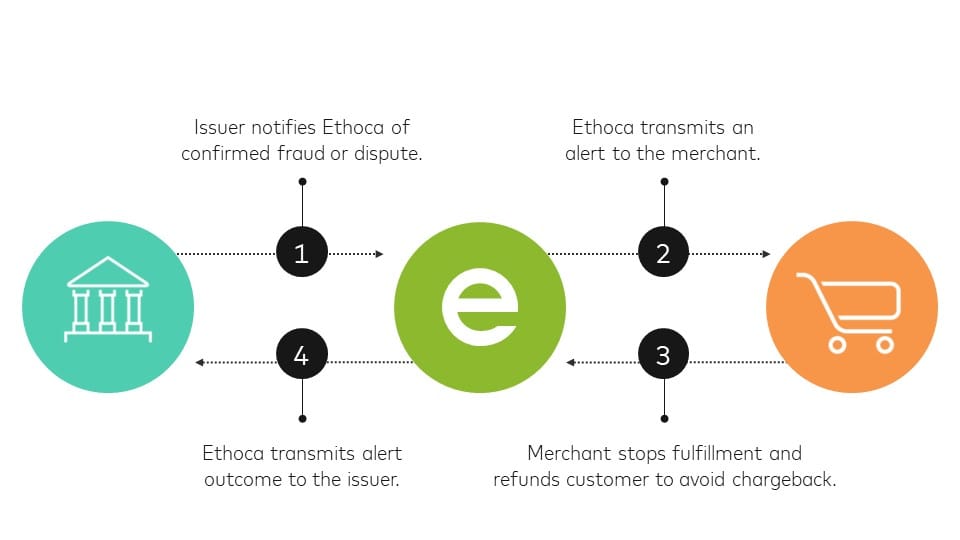
Welcome to our blog post on managing recurring payments with expired credit cards. In today's digital age, recurring payments have become a convenient and popular way to manage subscriptions, memberships, and other ongoing expenses. However, one common challenge that many people face is dealing with expired credit cards and the subsequent failure of recurring payments.
In this blog post, we will explore the reasons why recurring payments fail with expired credit cards and the importance of understanding credit card expiry dates. We will also provide practical tips and strategies for preventing failed recurring payments and handling them effectively when they do occur.
Understanding the intricacies of credit card expiry dates and how recurring payments work is crucial in preventing payment failures. We will delve into the various reasons why recurring payments fail with expired credit cards, including the impact of credit card expiry dates on payment processing.
To prevent failed recurring payments, we will share practical suggestions such as updating credit card information regularly, setting reminders for credit card expiry dates, and utilizing automatic update services provided by credit card issuers. These measures will help ensure that your recurring payments continue seamlessly without interruption.
However, in the event that a recurring payment does fail due to an expired credit card, we will guide you through the necessary steps to rectify the situation. This includes identifying the failed payment, contacting the service provider, and updating the credit card information to resume the recurring payment.
Furthermore, we will discuss preventive measures for the future to minimize the chances of recurring payment failures. This includes using credit cards with longer expiry dates, setting up multiple payment methods as backup options, and engaging in regular credit card maintenance to stay on top of expiration dates.
Managing recurring payments with expired credit cards can be a challenge, but with the right knowledge and proactive measures, you can ensure a smooth and hassle-free payment experience. Join us as we explore the best practices for managing recurring payments and maintaining financial stability. Let's dive in!
Understanding Recurring Payments and Expired Credit Cards
Recurring payments have revolutionized the way we manage our finances. They offer convenience and peace of mind by automatically deducting payments from our credit cards on a regular basis, ensuring that we never miss a payment deadline. However, when our credit cards expire, it can lead to payment failures and potential disruptions in our subscriptions or services.
To understand why recurring payments fail with expired credit cards, it is essential to grasp the concept of recurring payments itself. Recurring payments are agreements between consumers and service providers, where the consumer authorizes the provider to charge their credit card at regular intervals, typically on a monthly or yearly basis.
These payments are often used for various services, such as streaming platforms, gym memberships, software subscriptions, and utility bills. By setting up a recurring payment, consumers can enjoy uninterrupted access to these services without the hassle of manually making payments each time.
Now, let's delve into the connection between recurring payments and expired credit cards. When you initially set up a recurring payment, you provide your credit card information, including the card number, expiration date, and security code. The expiration date is a crucial element of this process.
Credit card expiration dates are typically printed on the front of the card and indicate the month and year until which the card is valid. Once the expiration date passes, the card is deemed invalid and cannot be used for any transactions. This includes recurring payments, as the service provider's payment system relies on the validity of the credit card to process payments.
When a recurring payment is scheduled, the service provider's system automatically attempts to charge the credit card on the specified date. If the credit card has expired, the payment will fail, and the service provider will receive a notification regarding the unsuccessful transaction.
Understanding the relationship between recurring payments and expired credit cards is crucial because it highlights the importance of updating credit card information in a timely manner. Failure to update credit card details can result in interruptions to your subscriptions or services, which can be frustrating and time-consuming to rectify.
In the next section, we will delve deeper into the intricacies of credit card expiry dates and how they impact recurring payments. By gaining a comprehensive understanding of these factors, you will be better equipped to prevent and manage failed recurring payments due to expired credit cards.
Why Recurring Payments Fail with Expired Credit Cards
Recurring payments can fail when credit cards expire, leading to inconveniences and potential disruptions in our financial obligations. Understanding why recurring payments fail with expired credit cards is crucial in order to take proactive measures to prevent such failures. In this section, we will explore the reasons behind these payment failures and shed light on the impact of credit card expiry dates.
Understanding Credit Card Expiry Dates
Credit card expiry dates are an essential component of credit card transactions. They indicate the month and year until which the card is valid for use. Typically, expiration dates are printed on the front of credit cards, allowing both the cardholders and merchants to easily identify when the card will expire.
How Recurring Payments Work
To comprehend why recurring payments fail with expired credit cards, it's crucial to understand how these payments function. When you set up a recurring payment, you authorize a service provider to charge your credit card automatically at regular intervals. The service provider's payment system relies on the validity of the credit card to process these payments.
Reasons for Payment Failure
There are several reasons why recurring payments may fail when credit cards expire:
Invalid Card Information: When a credit card expires, it becomes invalid for transactions. If the service provider's payment system attempts to charge an expired credit card, the transaction will be declined, resulting in a payment failure.
Card Replacement: Credit card issuers periodically send out new cards to replace expired ones. If you receive a replacement card and fail to update your credit card information with the service provider, recurring payments will fail as the old card will no longer be valid.
Lack of Sufficient Funds: In some cases, recurring payments may fail not due to an expired credit card, but rather due to insufficient funds in the associated bank account. This can occur when the service provider attempts to charge the payment, but there are not enough funds available to cover the transaction.
Payment Processor Errors: Occasionally, payment processors or gateways may encounter technical issues that result in failed recurring payments, even if the credit card is valid. These errors are typically resolved by the payment processor, but they can still cause temporary disruptions in recurring payment processing.
Understanding these reasons for payment failures with expired credit cards is crucial in order to implement preventive measures and minimize the chances of recurring payment disruptions. In the next section, we will focus on practical strategies to prevent failed recurring payments due to expired credit cards.

Preventing Failed Recurring Payments due to Expired Credit Cards
Preventing failed recurring payments due to expired credit cards is essential to ensure uninterrupted access to your subscriptions, memberships, and services. In this section, we will discuss practical strategies and preventive measures to help you avoid payment failures caused by expired credit cards.
Updating Credit Card Information Regularly
One of the most effective ways to prevent failed recurring payments is to update your credit card information regularly. As soon as you receive a new credit card with an updated expiration date, take the time to update your payment details with all relevant service providers.
To do this:
Check for Card Expiration Dates: Keep track of the expiration dates of your credit cards. This can be done by referring to the expiry date printed on the card or through online banking portals where you can view your credit card details.
Keep a List of Service Providers: Maintain a list of all the service providers that you have set up recurring payments with. This will help you ensure that you update the credit card information for all the necessary accounts.
Contact Service Providers: Reach out to each service provider individually to update your credit card information. Most providers have dedicated customer support channels or online account management systems where you can update your payment details.
Consider Auto-update Services: Some credit card issuers offer automatic update services, where they notify service providers of your updated credit card information whenever your card is reissued or expires. Check with your credit card issuer to see if this service is available and opt-in if possible.
By proactively updating your credit card information, you can prevent payment failures and ensure that your recurring payments continue without interruption.
Setting Reminders for Credit Card Expiry Dates
Another useful strategy is to set reminders for your credit card expiry dates. This will help you stay organized and prompt you to update your payment details in a timely manner. Here's how you can set reminders:
Calendar Alerts: Use your preferred calendar app or digital organizer to set reminders for upcoming credit card expiry dates. Set the reminder a few weeks before the expiration date to give yourself ample time to update your information.
Notifications and Alerts: Many credit card issuers provide notification services to alert you when your card is nearing its expiry date. Take advantage of these services and ensure that you have enabled notifications through your credit card issuer's online banking portal or mobile app.
Task Management Apps: If you use task management apps or to-do lists, create a recurring task to check and update your credit card information before the expiration date. This will help you stay on top of your financial obligations.
Setting reminders will serve as a proactive measure to prevent payment failures by ensuring that you update your credit card information before it becomes invalid.
Utilizing Automatic Update Services from Credit Card Issuers
Some credit card issuers offer automatic update services to simplify the process of updating your credit card information with service providers. This service automatically notifies service providers of your updated credit card details whenever your card is reissued or expires.
To take advantage of this service:
Check if Your Credit Card Issuer Provides Auto-update: Contact your credit card issuer or check their website to see if they offer automatic update services. Not all issuers provide this service, so it's important to confirm if it is available.
Opt-in for Auto-update: If your credit card issuer does offer automatic update services, opt-in to take advantage of this convenient feature. Follow the instructions provided by your credit card issuer to enroll in the service.
Verify with Service Providers: Even if you have opted for auto-update services, it's a good practice to verify with your service providers that they have received the updated credit card information. This will give you peace of mind and ensure that the payment details are correctly updated in their systems.
By utilizing automatic update services, you can streamline the process of updating your credit card information and minimize the chances of payment failures due to expired credit cards.
By implementing these preventive measures, you can significantly reduce the risk of failed recurring payments caused by expired credit cards. In the next section, we will explore how to handle failed recurring payments when they do occur and guide you through the necessary steps to rectify the situation.
Handling Failed Recurring Payments due to Expired Credit Cards
Handling failed recurring payments due to expired credit cards can be a frustrating experience, but it's important to address the issue promptly to avoid any further disruptions to your subscriptions or services. In this section, we will guide you through the necessary steps to handle failed recurring payments effectively.
Identifying the Failed Payment
The first step in handling a failed recurring payment is to identify that it has occurred. Here's what you can do:
Check your Email or Notifications: Service providers often send email notifications or alerts when a recurring payment fails. Look for any communication from the service provider regarding the failed payment.
Review your Bank or Credit Card Statement: Check your bank or credit card statement for any failed payment transactions. Look for entries that indicate declined or rejected payments.
Contact Customer Support: If you're unsure about the status of your recurring payment, reach out to the customer support of the service provider. They can provide you with information about the failed payment and guide you through the next steps.
Contacting the Service Provider
Once you have identified the failed payment, it's essential to contact the service provider to rectify the situation. Here's what you should do:
Find the Contact Information: Locate the contact information of the service provider. This can usually be found on their website, in their mobile app, or on your account dashboard.
Reach Out to Customer Support: Contact the customer support of the service provider through their designated channels, such as phone, email, or live chat. Explain the situation and provide them with the necessary details regarding the failed payment.
Inquire about Payment Recovery: Ask the service provider about their process for recovering the missed payment. They may request updated credit card information or provide alternative payment methods to resolve the issue.
Follow the Instructions Provided: Follow the instructions provided by the service provider to rectify the payment failure. This may involve updating your credit card information, making a manual payment, or providing any additional information they require.
Updating the Credit Card Information
In some cases, the failed payment may be due to an expired credit card that needs to be updated. Here's what you should do:
Verify the Expiration Date: Check the expiration date of your credit card to ensure that it has indeed expired.
Update Credit Card Information: If the credit card has expired, update your payment details with the service provider as soon as possible. Follow their instructions for updating credit card information through their website or customer portal.
Confirm Successful Update: After updating your credit card information, verify with the service provider that the details have been successfully updated in their system. This will ensure that future recurring payments are processed correctly.
By promptly contacting the service provider and addressing the failed payment, you can resolve the issue and prevent any further disruptions to your subscriptions or services.
In the next section, we will discuss preventive measures that you can take to minimize the chances of recurring payment failures due to expired credit cards in the future.
Preventive Measures for Future
Taking preventive measures is crucial to minimize the chances of recurring payment failures due to expired credit cards in the future. By implementing these measures, you can ensure a smooth and uninterrupted payment experience. In this section, we will discuss several preventive measures that you can take.
Using Credit Cards with Longer Expiry Dates
When applying for a credit card, consider choosing one with a longer expiration date. Some credit cards have expiration dates that extend beyond the standard two to three years. By opting for a credit card with a longer validity period, you can reduce the frequency of updating your payment details.
Setting up Multiple Payment Methods
To add an extra layer of protection against payment failures, consider setting up multiple payment methods for your recurring payments. This can include having multiple credit cards linked to your accounts, as well as alternative payment methods such as PayPal or digital wallets.
By diversifying your payment methods, you have a backup option in case one credit card expires or encounters any issues. In the event of a failed payment, the service provider can automatically charge the backup payment method, ensuring uninterrupted access to your subscriptions or services.
Engaging in Regular Credit Card Maintenance
Regular credit card maintenance is essential to stay on top of your financial obligations. Here are some maintenance tasks you can incorporate into your routine:
Review Credit Card Expiry Dates: Periodically review the expiry dates of your credit cards. This can be done by checking the cards themselves or viewing the details through your online banking portal.
Update Credit Card Information: Whenever you receive a new credit card or if your existing card is about to expire, promptly update your credit card information with all relevant service providers. This proactive approach will help prevent payment failures.
Monitor Payment Notifications: Keep an eye on payment notifications from your service providers. If you receive any alerts about failed payments or expired credit cards, take immediate action to rectify the situation.
By engaging in regular credit card maintenance, you can ensure that your payment information is up to date and minimize the risk of recurring payment failures due to expired credit cards.
Taking these preventive measures will help you maintain smooth and uninterrupted recurring payments, saving you time and frustration in the long run.
In conclusion, managing recurring payments with expired credit cards can be challenging, but with the right understanding and proactive measures, you can navigate this process effectively. By regularly updating your credit card information, setting reminders for expiry dates, utilizing auto-update services, promptly addressing failed payments, and implementing preventive measures, you can ensure a seamless payment experience and maintain financial stability.
We hope this comprehensive guide has provided you with valuable insights and practical strategies to manage recurring payments with expired credit cards. Remember, staying proactive is key to maintaining uninterrupted access to your subscriptions and services.


